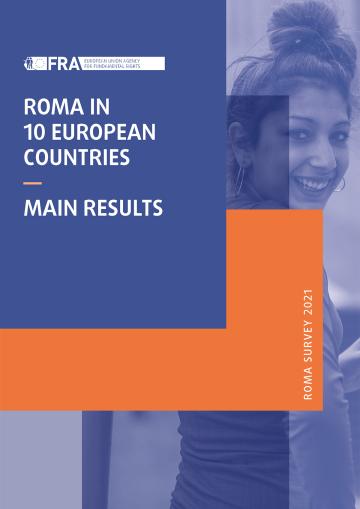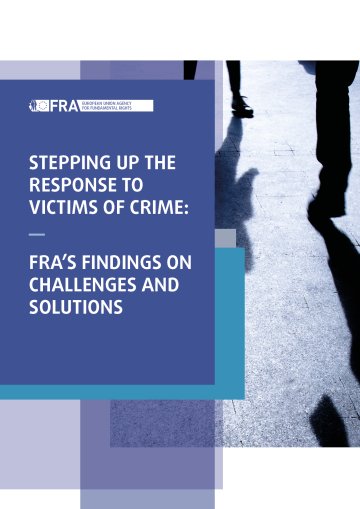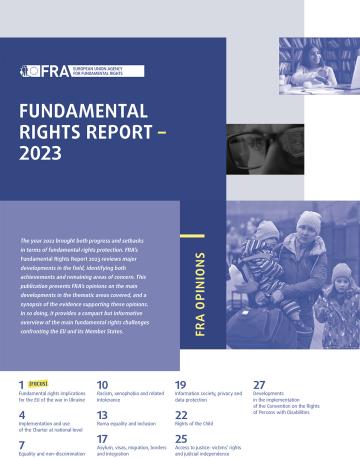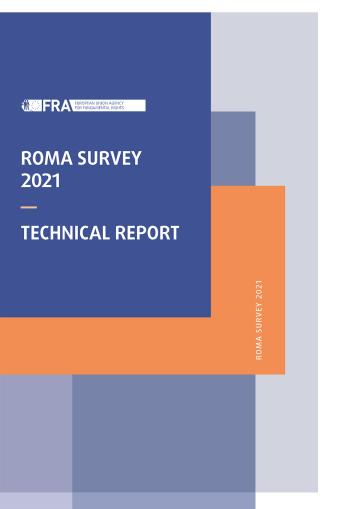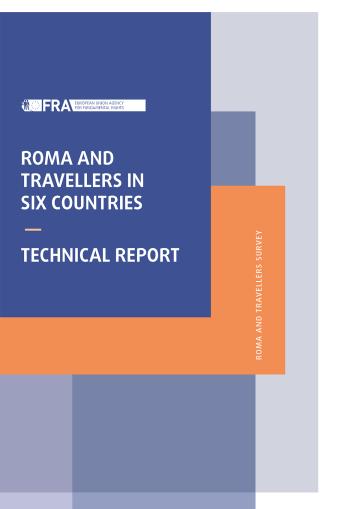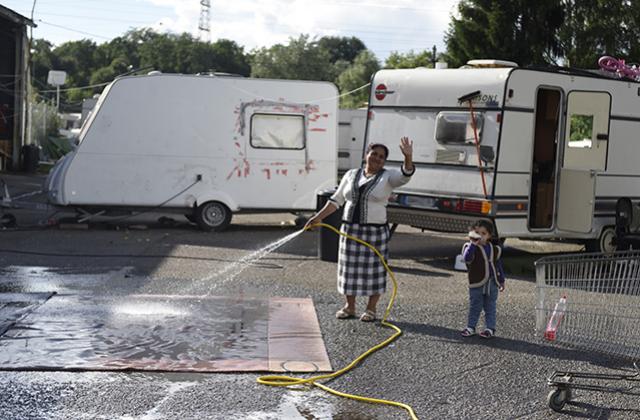- Why did FRA run this survey?
-
EU institutions have long underlined the need to ensure that Roma – the largest European ethnic minority – are treated equally with respect to their fundamental rights as enshrined in the EU’s Charter of Fundamental Rights. They have also provided guidance and funding to EU Member States to achieve this.
The EU’s Roma strategic framework has set clear targets on Roma inclusion and equality Member States have to achieve by 2030. It calls on FRA to provide data and background information on progress towards Roma inclusion in EU Member States. This survey provides comparable data on the actual impact of EU and national anti-discrimination, anti-racism and equality legislation policies.
- How did FRA conduct the survey?
-
The survey covered Roma aged 16 or older who live in Croatia, Czechia, Greece, Hungary, Italy, North Macedonia, Portugal, Romania, Serbia and Spain. Information was collected on over 20,000 household members from nearly 8,500 Roma respondents.
All respondents were selected randomly and the survey results are representative for Roma living in the survey countries. The interviews were carried out face-to-face in the country’s official language using standardised survey questions.
Data from Bulgaria and Slovakia came from their national statistical offices, for which the fieldwork took place in the second half of 2020. FRA fieldwork took place from February until August 2021, which was during the Covid-19 pandemic. Measures to control the pandemic may have affected the results. For example, there were fewer job opportunities in this timeframe and schooling suffered from a lack of access to distance learning.
It builds on previous FRA Roma surveys: in 2008, 2011 and 2016 and on Roma and Travellers in 2019.
- What questions did the survey ask?
-
The survey covers topics such as experiences of discrimination in different areas of life (employment, education, housing, health and other services), criminal victimisation (including hate crime), corruption and experiences with the police, rights awareness, social inclusion and societal participation. It also collects information on income and living conditions.
- To what extent do Roma suffer from poverty?
-
- 80% of Roma interviewed continue to live below the at-risk-of-poverty threshold of their country; the EU average is 17%. This rises to 98% in Spain and Italy, 96% in Greece and Portugal and 93% in Croatia.
- 61% indicated that they face difficulties in making ends meet.
- 27% live in households where someone went to bed hungry in the last month.
- What are Roma living conditions like?
-
- The EU aims to reduce the gap in housing deprivation between Roma and the general population by one third by 2030.
- 52% live in damp, dark dwellings or housing without proper sanitation facilities, a drop from 61% in 2016.
- 22% live in households with no tap water inside their house, improvement since 2016 (30%).
- 82% live in overcrowded housing much the same as in 2016.
- What is it like for Roma children?
-
- Roma children are more likely to live in overcrowded households (94%) and households without access to tap water (24%).
- 29% live in households where someone went to bed hungry in the last month.
- What are the educational prospects for Roma?
-
- The EU aims to halve the gap between Roma and the general population regarding participation in early childhood education and care.
- Roma children surveyed lag behind their non-Roma peers on all education indicators with no appreciable change since 2016.
- Only 44% attend early childhood education and care.
- 71% leave the education system early.
- There continues to be a high proportion of Roma without any formal education across all age groups surveyed, particularly in Greee, Croatia, Portugal and Spain.
- School segregation remains a problem, particularly in Bulgaria and Slovakia.
- What is the employment situation for Roma?
-
- The EU calls on Member States to at least halve the employment gap between Roma and non-Roma, and to ensure that at least 60% of Roma are in paid work by 2030.
- 43% of Roma surveyed were in paid work; the EU 2020 average was 72%.
- Roma women reported lower employment rates (28%) than Roma men 58%.
- 56% of Roma aged 16–24 were not in employment, education or training. However, Hungary is close to meeting the EU target.
- How do Roma life expectancies differ?
-
- The EU calls for Member States to halve the gap in life expectancy between Roma and non-Roma by 2030.
- Roma women live on average 11 years less than women generally. Roma men live on overage 9 years less than men generally.
- To what extent do Roma suffer discrimination?
-
- The EU aims to have 13% or less Roma experiencing discrimination by 2030.
- Roma continue to face intolerable levels of discrimination in daily life – whether looking for work, at work, in education, healthcare, or when in contact with administration or entering a shop.
- 25% of Roma felt discriminated against at least once in one of these areas of daily life in the year before the survey. In 2016, it was 26%.
- Noticeably, the number of Roma experiencing discrimination when looking for work doubled from 2016 – up from 16% to 33%.
- However, harassment was significantly lower, down from 30% to 17%. Violence also dropped from 4% to 1%, although it is notably higher in Italy (10%).
- How well do Roma know their rights and trust public institutions?
-
- The EU aims to ensure that by 2030 at least 30% of Roma victims report instances of discrimination.
- Awareness of organisations that support victims of discrimination rose significantly from 29% to 50%.
- However, only 5% of victims reported incidents of discrimination. A large drop (16%) since 2016.
- 39% of Roma trust the police in their country and 31% trust the legal system.
- How do these findings compare with earlier surveys?
-
- The findings show that many Roma continue to live in conditions of severe poverty and exclusion, and face discrimination that often hinders efforts to improve their situation.
- There is progress in some areas but not as much as expected since 2016; often it is too little and too limited. In some areas, the situation is now worse.
- Examples of progress include improvements in rights awareness and housing conditions. They also face less discrimination when looking for housing and less harassment.
- What can be done to improve the situation?
-
Countries should use these, and earlier FRA results, to develop and assess more targeted measures in their national Roma strategies. This particularly applies to tackling Roma poverty, discrimination, education and employment.
They should also regularly collect statistical data on Roma to guide their efforts in meeting the EU’s targets. Concrete examples of what could be done include:
- early childhood learning support and integrated schooling;
- better employment opportunities and greater social protection to eradicate poverty;
- targeted education and training to specifically help Roma youths and Roma women in their transition from primary to secondary education, and thereafter find work.
